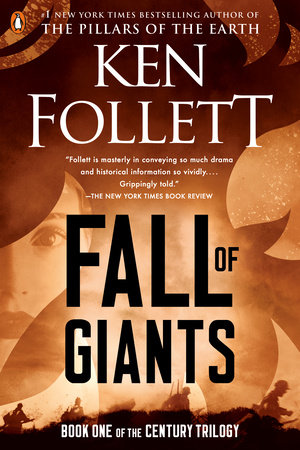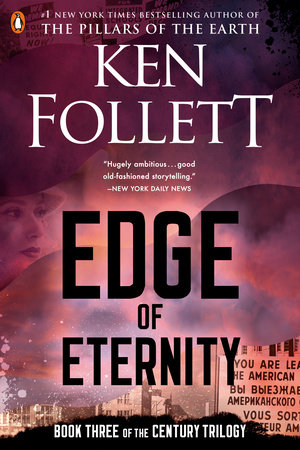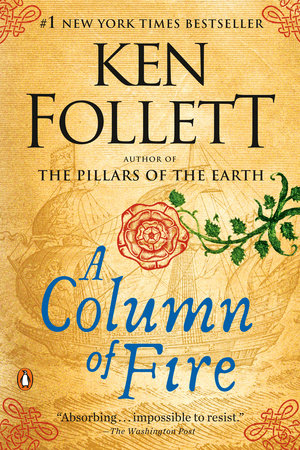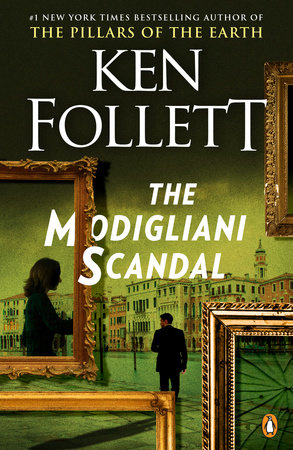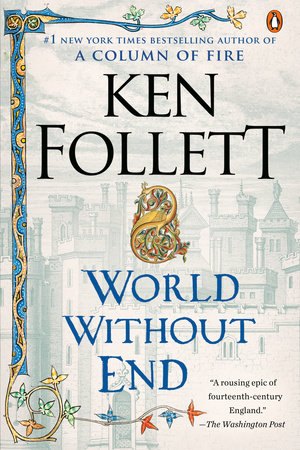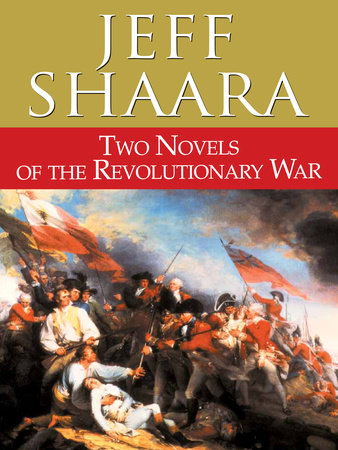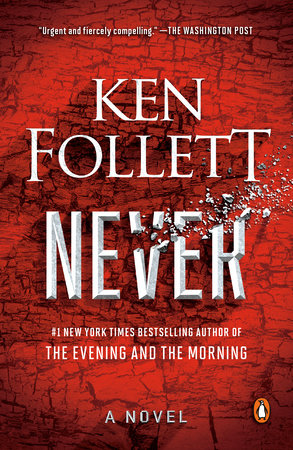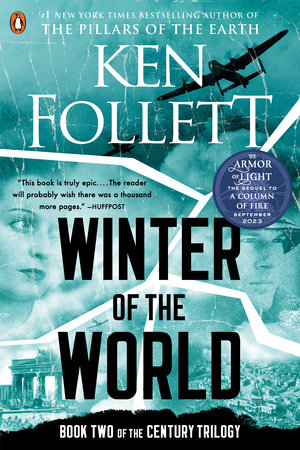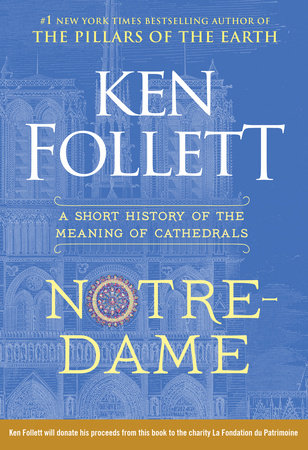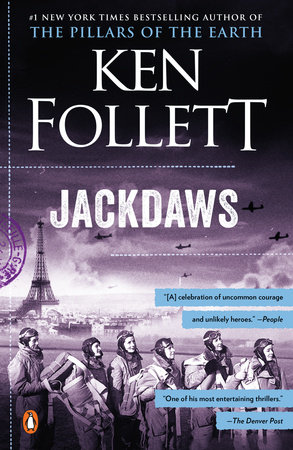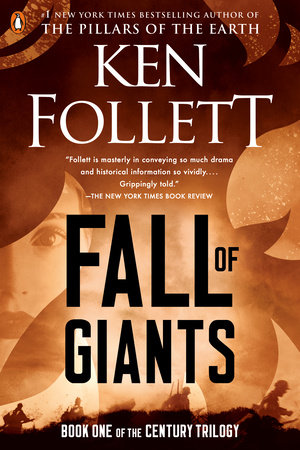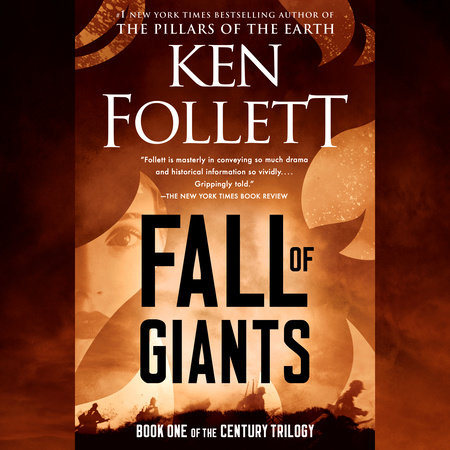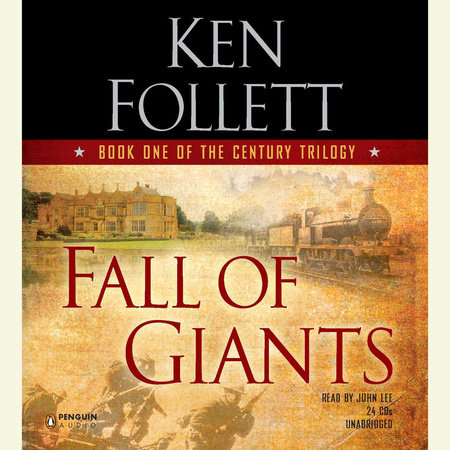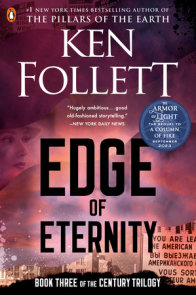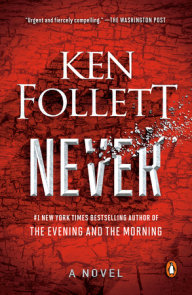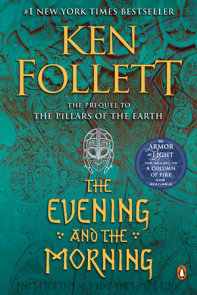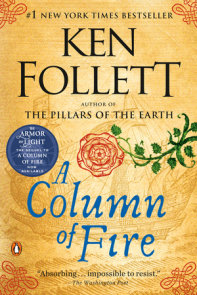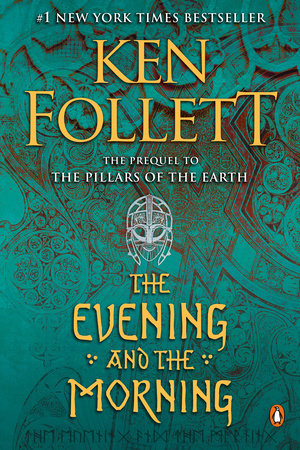Author Q&A
Early in your career, you were known primarily as a thriller writer, but two decades ago you made a transition to historical fiction with The Pillars of the Earth, which became your most popular novel of all and your own personal favorite. You followed it up in 2007 with a sequel, World Without End, which also became a #1 international bestseller. But those books were set in the Middle Ages, and with Fall of Giants, the first book in your new Century Trilogy, you have moved into modern history. What about the twentieth century appealed to you particularly?
I've enjoyed immersing myself in the Middle Ages, and I know readers have been intrigued too, but it's not the only fascinating period of history. I wanted to give readers a similar experience with an era that their own grandparents and great–grandparents lived through. In a way, Fall of Giants is about understanding ourselves and where we all come from.
Many real historical figures appear in your novel, including President Woodrow Wilson and Winston Churchill. How closely did you follow the historical record in portraying them?
Several real historical characters appear in these pages, and readers sometimes ask how I draw the line between history and fiction. It's a fair question, and here's the answer.
In some cases, for example when Sir Edward Grey addresses the House of Commons, my fictional characters are witnessing an event that really happened. What Sir Edward says in this novel corresponds to the parliamentary record, except that I have shortened his speech, without, I hope, losing anything important.
Sometimes a real person goes to a fictional location, as when Winston Churchill visits Tŷ Gwyn. In that case, I have made sure that it was not unusual for him to visit country houses, and that he could well have done so at around that date.
When real people have conversations with my fictional characters, they are usually saying things they really did say at some point. Lloyd George's explanation to Fitz of why he does not want to deport Lev Kamenev is based on what Lloyd George wrote in a memo quoted in Peter Rowland's biography.
My rule is either the scene did happen, or it might have; either these words were used, or they might have been. And if I find some reason why the scene could not have taken place in real life, or why the words would not really have been said—if, for example, the character was in another country at the time—I leave it out.
As you portray the build–up to the First World War, there is plenty of blame to go around. It wasn't just German aggression, as so many of us in America and Britain learned in our school textbooks. Similarly, your wiser characters criticize the terms of the peace agreement that was forced on the Germans at the end of the war—humiliating and highly punitive terms that are now widely seen as helping to lead to World War II. Do you think some people will accuse you of being too soft on Germany?
I doubt it. Most people know history is more complex than good guys and bad guys. But few of us know why the First World War happened or why the Bolsheviks won the Russian Revolution. I want readers first of all to enjoy the story, but second to feel, when they put the book down, that they now understand things that used to seem incomprehensible.
Back in the early twentieth century, every major country seemed to feel that it should be the one issuing orders, and that the rest of the world should obey. Do you see any dangerous parallels between the behavior of nations then and now?
Then, now, and at every period of history, the lesson is that throwing your weight around isn't always the smart thing to do.
What role did the media in the freer countries like Britain and the United States play in the run–up to the First World War? Is that role substantially different today?
In most countries the hysterical patriotism and wildly inaccurate reporting of the press brought war closer. But, as you can see from what happens in Fall of Giants, media that is irresponsible but free is still better than media controlled and censored by the government.
In traditional histories of the early twentieth century, rarely is there much about the fight for women's suffrage, but you have made it a central concern of your novel. Why?
Of all the massive changes that took place in the twentieth century, the biggest was equality for women. My granddaughters' generation takes for granted a freedom that has reversed thousands of years of human history. This has had a greater effect on our lives than the storming of the Winter Palace.
Do you think it will surprise readers to realize how little freedom and equality women in Europe and America had in the early twentieth century? That an unmarried upper-class Englishwoman was not allowed to be alone with a man, for example, or that she had to ask her father's or brother's permission to get married—or that he expected to read all her mail?
Yes, it will surprise many readers, but more importantly I think they will relish the courage and resourcefulness of women in first getting around these restrictions and then abolishing them.
Politics is an important element in Fall of the Giants, and you're married to a politician who is a member of Parliament for the Labour Party in the United Kingdom. Did your relationship with your wife influence the view of politics that is presented in your novel? And is there anything of her, or other important women in your life, in your main female characters?
For the last thirteen years my friends have been running Britain, as members of parliament and peers and cabinet ministers. That has certainly given me a strong sense of the way political conflicts are resolved and decisions are made. The fact that Barbara has been part of the British government obviously gave me special insight. I could not have created a character such as Ethel Williams if I had not known Barbara.
With the Russian Revolution, you show how an uprising against the brutal regime of the tsar quickly led to the rise of the totalitarian Soviet dictatorship. But it may surprise readers to learn how much sympathy there was in Europe and the United States for the Bolshevik Revolution during its early days. How was that sympathy evinced?
Most people in Britain and the United States sympathized with the aims of the Russian Revolution at first. Soldiers sent to fight against the Bolsheviks mutinied, and dock workers refused to load ships with rifles destined for the opponents of the Communist regime. When the evidence started to come in that the Bolsheviks were as brutal and oppressive as the tsars, many people took a long time to be convinced.
Did it take the massive catastrophe of the First World War, in which more than ten million men died on all sides and all the major countries of Europe were brought to the brink of bankruptcy, to bring on the Russian Revolution and take down the old aristocratic order everywhere? Is this the "fall of giants" that your title refers to?
The giants that fell were the Austro–Hungarian Empire, the Ottoman Empire, the German Empire, and the regime of the tsars. Yes, I think a cataclysm of some kind was probably necessary before those obsolete rulers would let go of power.
A television miniseries based on The Pillars of the Earth with a cast headed by Golden Globe winners Ian McShane and Donald Sutherland is set to be broadcast globally around the time that Fall of Giants is published. Were you involved in the making of the series? Are you pleased with what you've seen of it so far?
The series has a great script by John Pielmeier and a dream cast. My only involvement was to play the part of an Anglo–French merchant in one scene! I have now watched the first two hours and I'm thrilled with the result.
The publication of Fall of Giants will be a major international event, with simultaneous publication in at least fifteen countries. Is this the biggest publication event of your career to date?
I certainly hope so. I have never before committed to such an ambitious and wide–ranging project. It is probably the publication event of my life.
What are your writing habits? Do you write daily? Do you work from a detailed outline?
I usually work every day except Sunday, staring around seven o'clock, and writing, with the usual breaks for meals and so on, until five in the afternoon. I spend up to a year planning the book, producing a detailed chapter breakdown that I then follow pretty faithfully. I show my first draft to editors, family and friends, and experts such as historians or police officers, then I do a complete rewrite.
What in broad strokes is going to happen in books two and three of The Century Trilogy? When will they be published?
I'm working on the second book now. It begins in Berlin in 1933, with the rise to power of Adolf Hitler, and ends in 1949 with the exploding of the Soviet nuclear bomb and the beginning of the cold war. The third book will be about the cold war. If I can keep to my timetable, book two will appear in 2012 and book three in 2014. May we all live so long!
